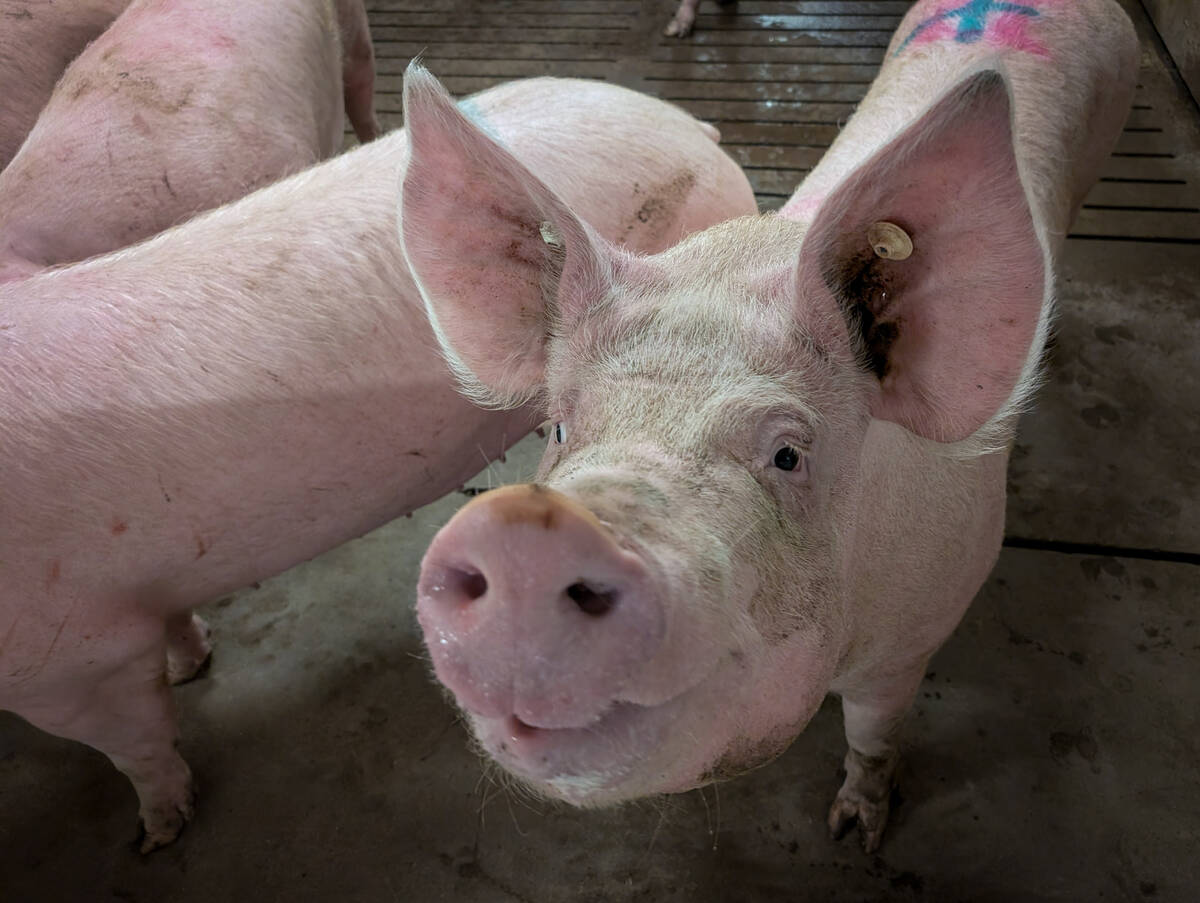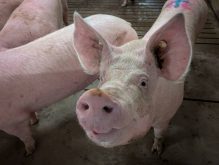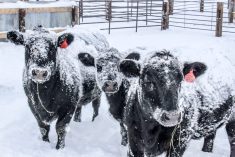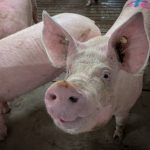Public review is now underway on federal regulations that will make it mandatory for Canada’s hog farmers to take part in the national PigTrace program.
The Canadian Food Inspection Agency on Monday said its proposed regulations, now open for comment until Aug. 13, will require “custodians of pigs” to identify all farmed pigs and farmed wild boars via “approved methods” — and to record and report all movements of pigs from birth or import to slaughter or export.
Canada is one of the few countries in the world initiating a national swine traceability system, and being one of the first to do so would give Canada’s pork industry “an opportunity to improve its market competitiveness,” Canadian Pork Council president Jean-Guy Vincent said in a release.
Read Also

Gene edited, PRRS resistant pig approved in Canada
Canada has given its stamp of approval to pigs gene edited to resist porcine reproductive and respiratory syndrome (PRRS).
When combined with the council’s other programs, he said, “a federally recognized and enforceable traceability program will continue to differentiate our product as a leader in the world pork market.” Furthermore, he noted, traceability “is gaining popularity in highly valued local and international markets.”
A mandatory traceability system for hogs, as is already in place in the cattle, bison and sheep sectors, “would help protect the health of Canadians and the national herd, and could contribute to the reopening of export markets in the event of an animal disease outbreak,” CFIA said in a separate release.
The proposed changes to the Health of Animals Regulations would also “bring national consistency in the pig sector and build on what is already in place in some provinces” such as Alberta, which launched its own farm-to-slaughter traceability system last year. CFIA said it has had consultations with the Alberta government to “ensure consistency” with that province’s program.
The CFIA estimates the costs of the proposed national system would include $1.14 million in one-time bills for the development of an information database and related training and communication.
The ongoing cost to the hog sector, meanwhile, would run at about $3.18 million per year including animal ID tags, materials and “related expenses.”
The voluntary PigTrace program, supported by participating producers, already incurs annual administrative costs of $1 million for the maintenance of its call centre and “communication activities,” CFIA said. The administrator would pay for ongoing database management and maintenance.
By comparison, CFIA said in its regulatory impact analysis statement, an animal disease outbreak without a traceability would cost Canada at least $6.1 billion in the year of the outbreak alone.
“Immediate access”
In a foot-and-mouth disease (FMD) outbreak, for example, FMD could spread to cattle and sheep and could also lower tourism revenues in Ontario, Quebec and Manitoba, where most of the hogs are raised, due to the movement restrictions that would be required to cut the risk of spreading the disease.
Furthermore, CFIA said, the value of Canadian pork exports was $2.65 billion in 2011, with $700 million exported to the U.S. alone. A disease outbreak or food safety issue in Canada affecting pigs could shut the door on that “lucrative” export market for pork products.
“If such an outbreak were to occur, the CFIA would work to minimize the impact, but such a response would be aided by more immediate access to complete and up-to-date information regarding pig identification, movement and location,” the agency said.
In a mandatory system, CFIA said, pigs would generally be required to be identified with numbers on a tag or tattoo when they’re moved. Pigs shipped for slaughter would only have to be identified by a slap tattoo indicating the site number on departure.
For “other types of movements,” pigs would possibly have to be individually identified by tags, the agency said.
When pigs are transported from one location to another for sale, breeding, exhibits or slaughter, both the sender and the recipient of the pigs would be required to report the movement of all the pigs identified, within 48 hours, to the administrator of the national database.
The proposed rules also include some exceptions, such as when pigs are moved to different physical locations on the same farm or to sites that are part of the same hog operation.
Pigs imported into Canada would have to have an approved tag applied either before import or as soon as the animal gets to its initial destination in Canada. Within 48 hours of import, the importer would have to report the location of the site where the pig was kept before it was imported, the location to which the pig was imported, the date of receipt, the ID number of the pig’s tag and the ID number of whatever vehicle brought the animal to Canada.
The federal agriculture ministry could also approve an official tag of a foreign country as equivalent, CFIA said. Such a tag wouldn’t need to be replaced with a Canadian tag if its information meets the new rules’ requirements and it can be entered and tracked in the national database.
Within 48 hours of export, an exporter would have to report the dates that pigs were loaded, the vehicle ID, the number of pigs loaded on each date, the location of the last sites before export, the number of pigs from each of the departure sites, the number of pigs going to each destination site and the ID numbers of the tags, slap tattoos, ear tags or ear tattoos.
CFIA has posted the proposed regulations online in the Canada Gazette and also plans to hold a number of teleconference information sessions for those looking for a “detailed explanation,” the pork council said. Invitations to those sessions can be requested by email.
Related stories:
Hog traceability system funded for second phase, Feb. 10, 2011
Hog traceability rules expected by early 2011, Sept. 10, 2010














